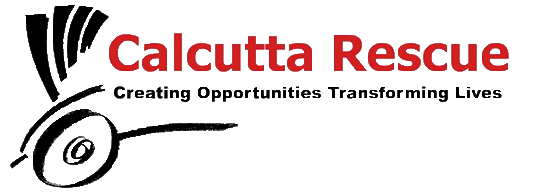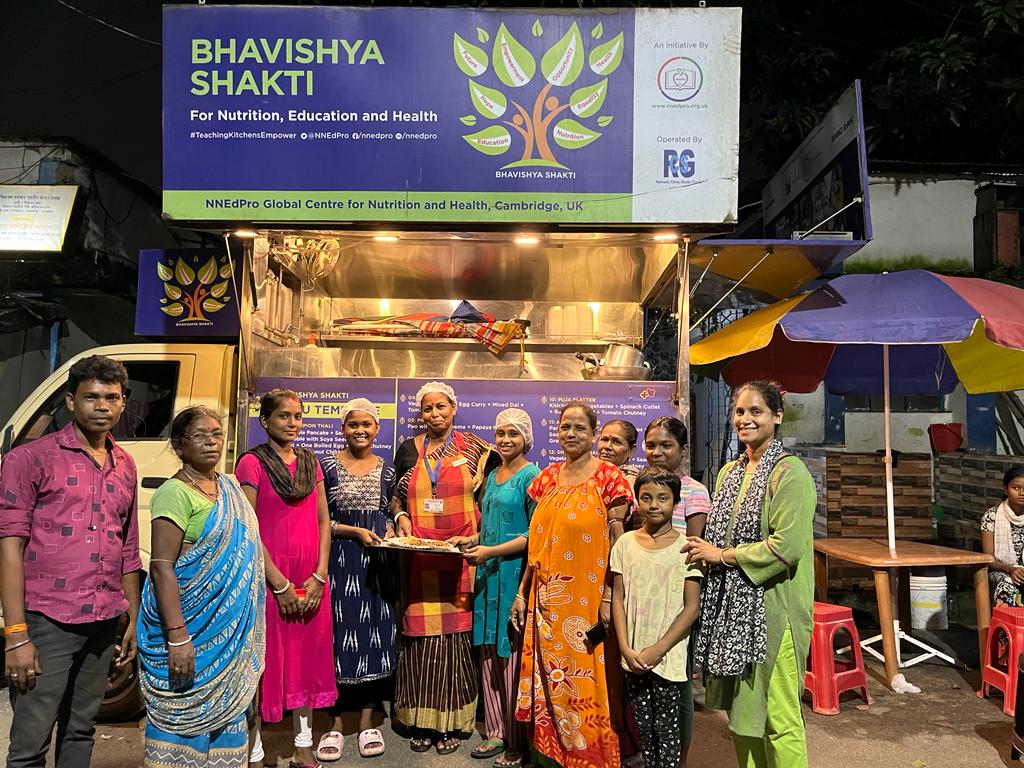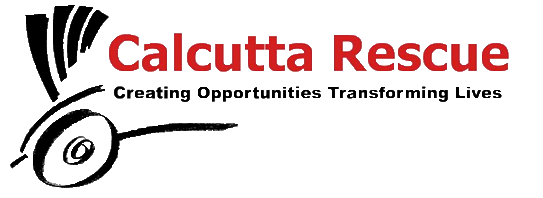
- Call us Today : +123 456 7890
- Email : [email protected]
“The vehicle kitchen came to our area, and Cook Didi, as we fondly call her, not only showed us how to cook healthy food but also allowed us to try it ourselves. This way, we can learn how to do it right and feed our families,” said Puja, who lives in the Dilerjung slum area where Calcutta Rescue provides street medicine, health awareness, and education.
Puja is just one of many young women and mothers who have learned how to make delicious and healthy meals from affordable ingredients thanks to a unique partnership between CR and two pioneering organisations.
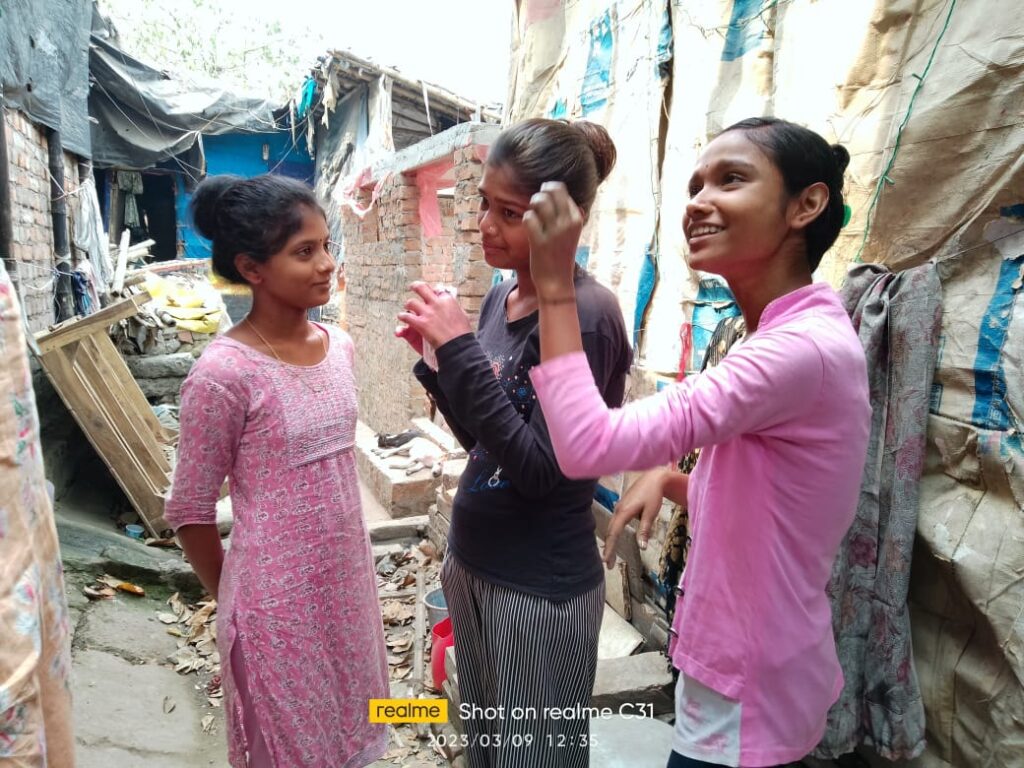
In late 2021, Calcutta Rescue partnered with Azim Premji Philanthropic Initiatives (APPI), a nonprofit organization that has been working with government schools to improve education since 2000. APPI supports 126 adolescent girls from Calcutta Rescue, focusing on their education and nutrition. The goal is to empower women in the six slum areas where these girls live, helping to uplift their communities.
That same year Calcutta Rescue joined forces with NNEdPro, the award-winning NNEdPro Global Institute for Food, Nutrition, and Health whose headquarters is in Cambridge in the UK. NNEdPro is working to improve health outcomes through nutrition-related initiatives in our slum areas, using a step-by-step approach.
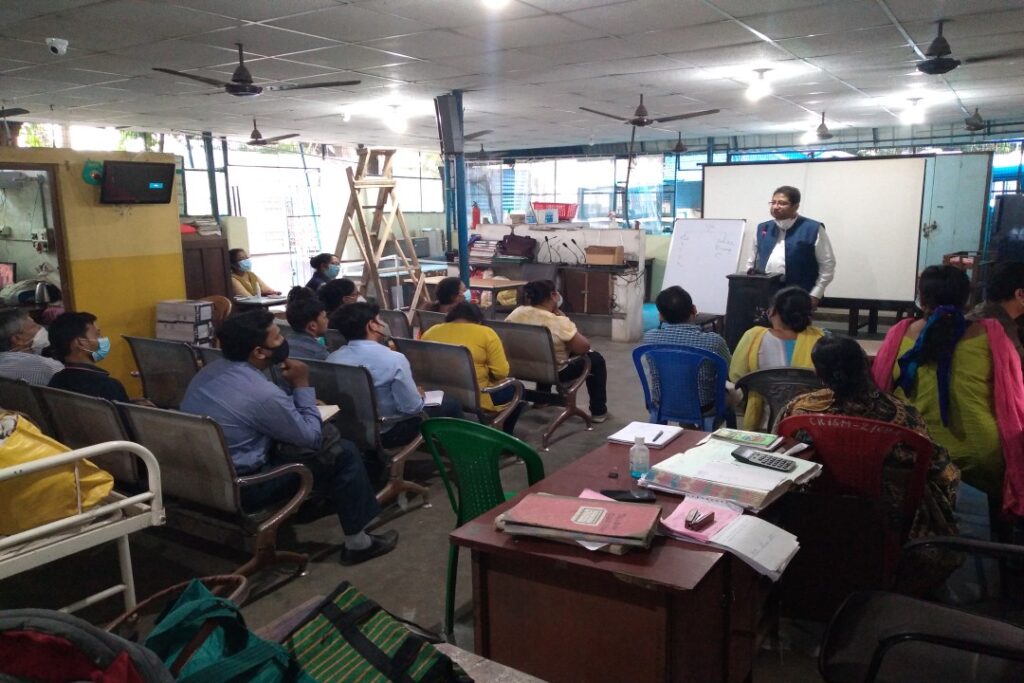
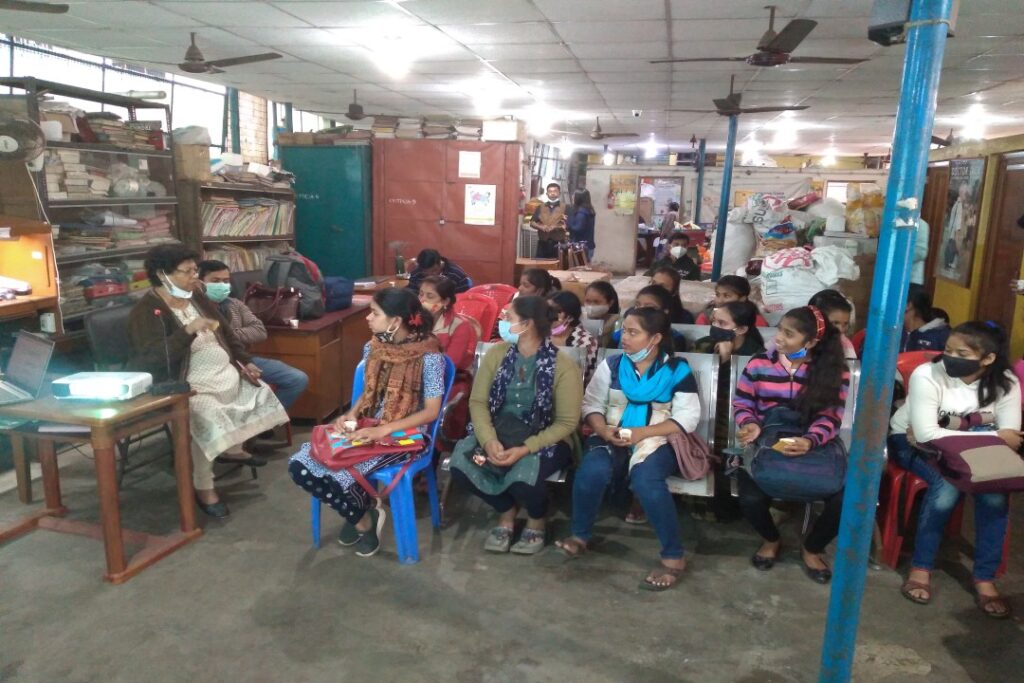
In the first step, NNEdPro professionals trained Calcutta Rescue’s Outreach team, Community Health Workers, and selected individuals from the slum area who were eager to learn about health and nutrition.
After the training, starting from May 2022, NNEdPro’s team, along with Community Health Workers, visited the slum areas to carry out the second step: awareness sessions.
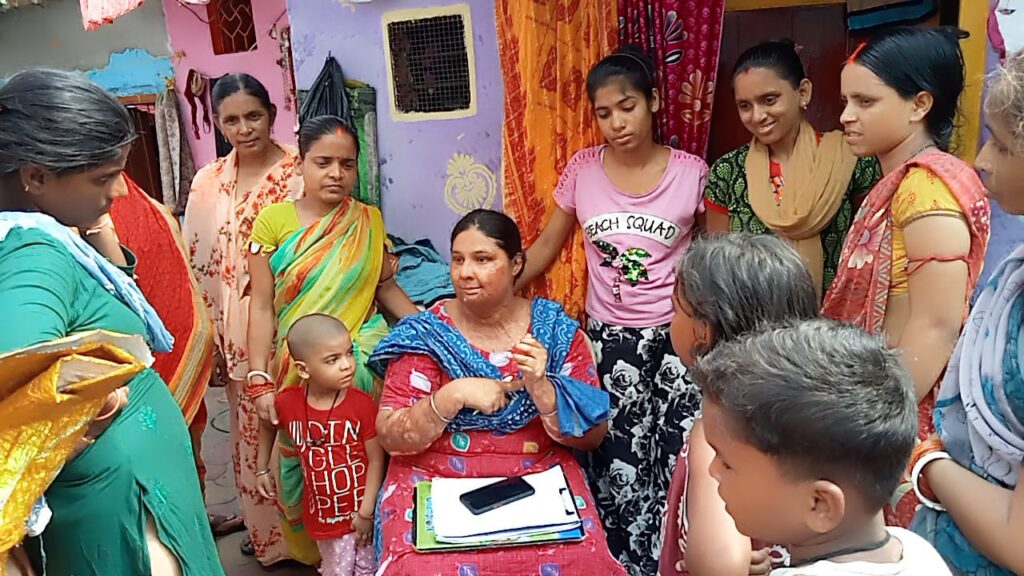
Santanu, head of the Outreach project explained, “The NNEdPro nutritionists went door-to-door, talking to the residents. They organized small sessions where they discussed the importance of vitamins, minerals, and other micronutrients, as well as which foods contain these nutrients. To make it easier to understand, they brought food like bananas, milk, bread, and eggs, which they not only talked about but also distributed to the residents.”
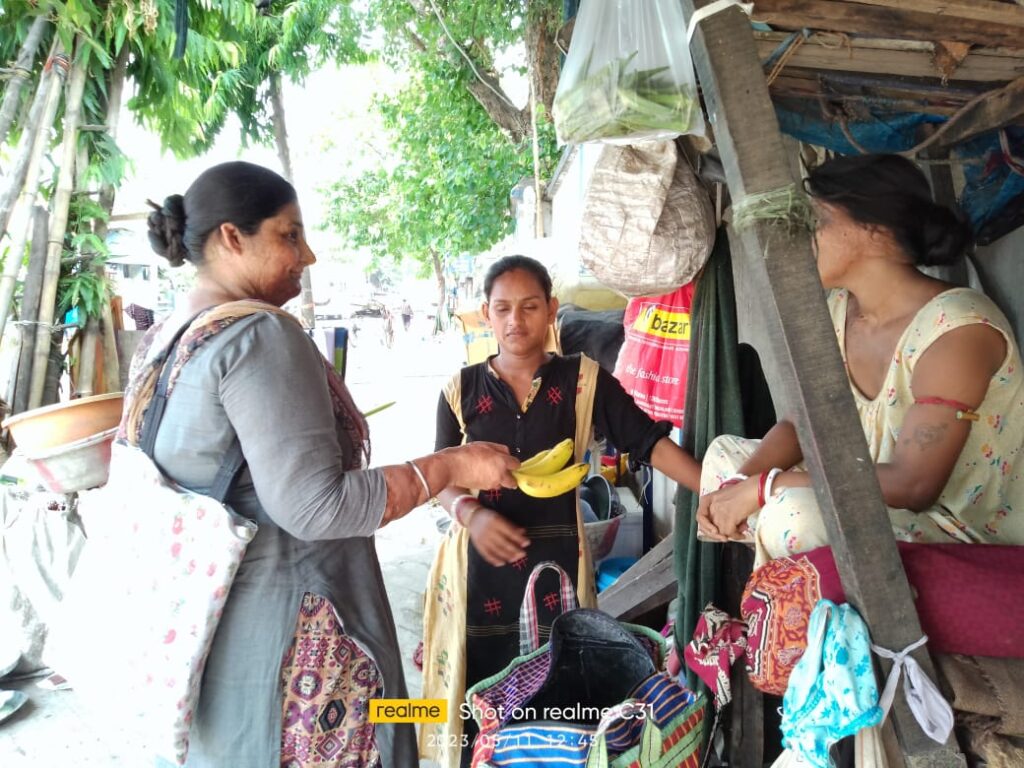
They also discussed women’s health, hand hygiene, food safety, and a balanced diet.
“The key to good health is eating healthy food in the right proportions. For example, adolescent girls need more iron-rich foods than boys of the same age. NNEdPro made it easy for our beneficiaries to understand,” said Dr. Ghosh, the head of the medical department at Calcutta Rescue.
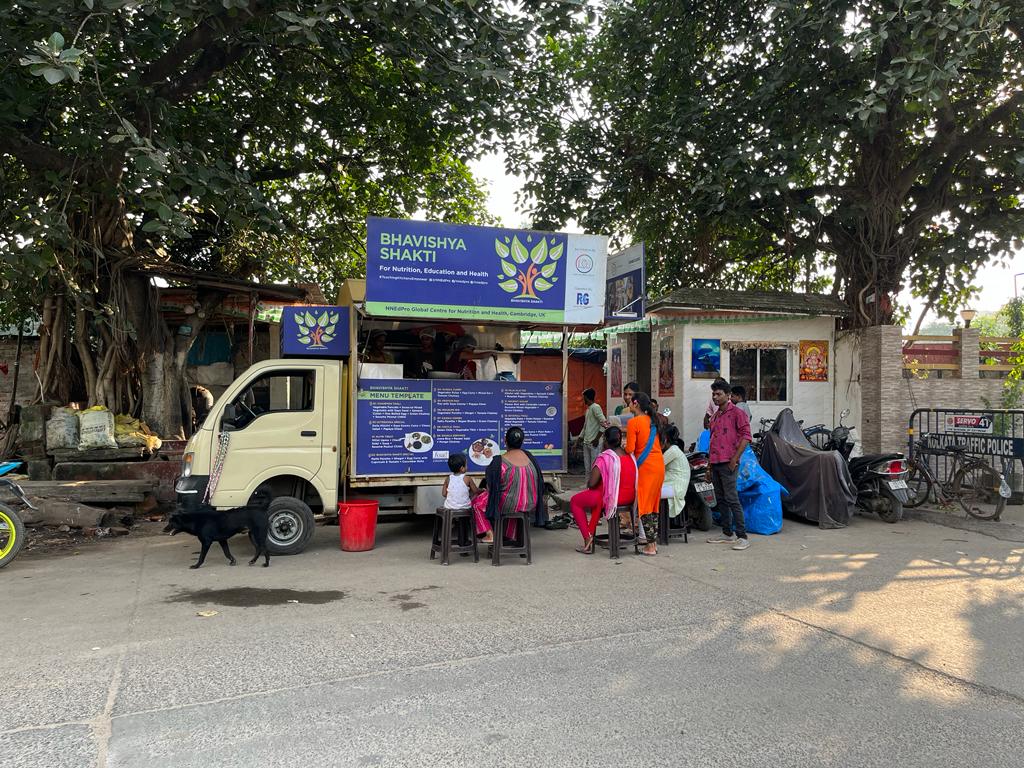
In the third step, they brought a mobile kitchen unit to each slum area. They cooked dishes like chana sabzi (a chickpea vegetable dish), upma (a dish made from vegetables and semolina), and simple recipes with eggs, peanuts, and milk. After the cooking demonstration, they distributed the food to the residents and encouraged them to cook for themselves.
NNEdPro team member Harmanpreet explained their teaching approach, “During our visits, we used the SoDoTo methodology, which stands for ‘See one, Do one, and Teach one.’”
Here’s how it works:
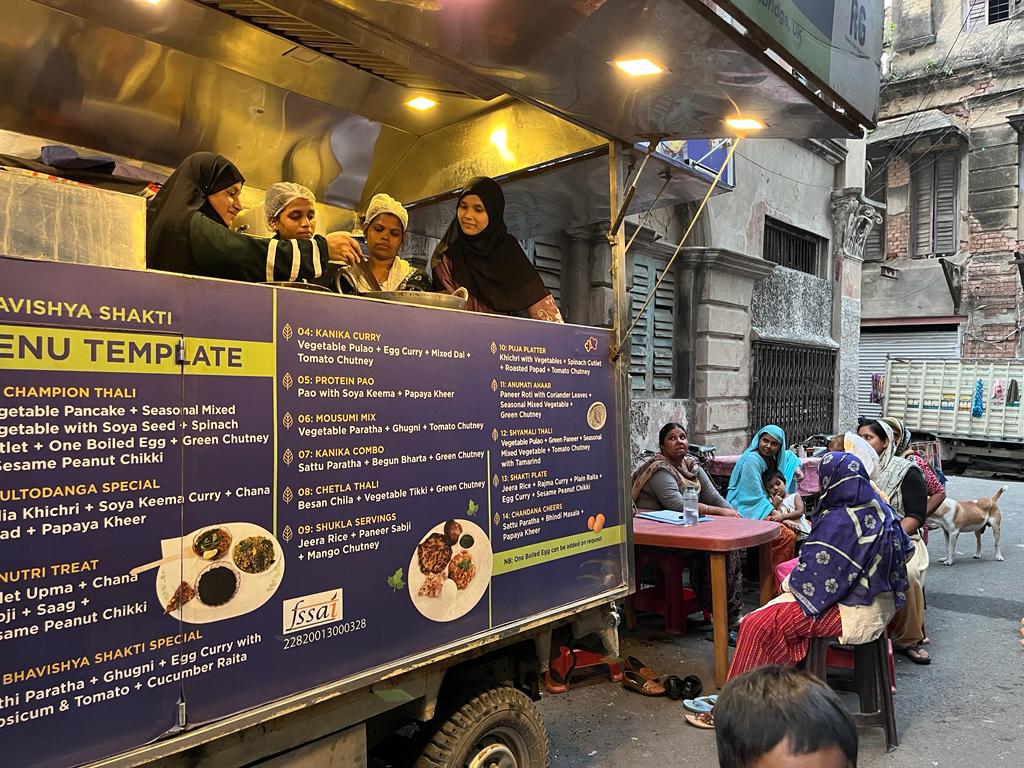
See one: Adolescents and female participants learned how to cook healthy meals by watching the cooking process and focusing on ingredient quantities.
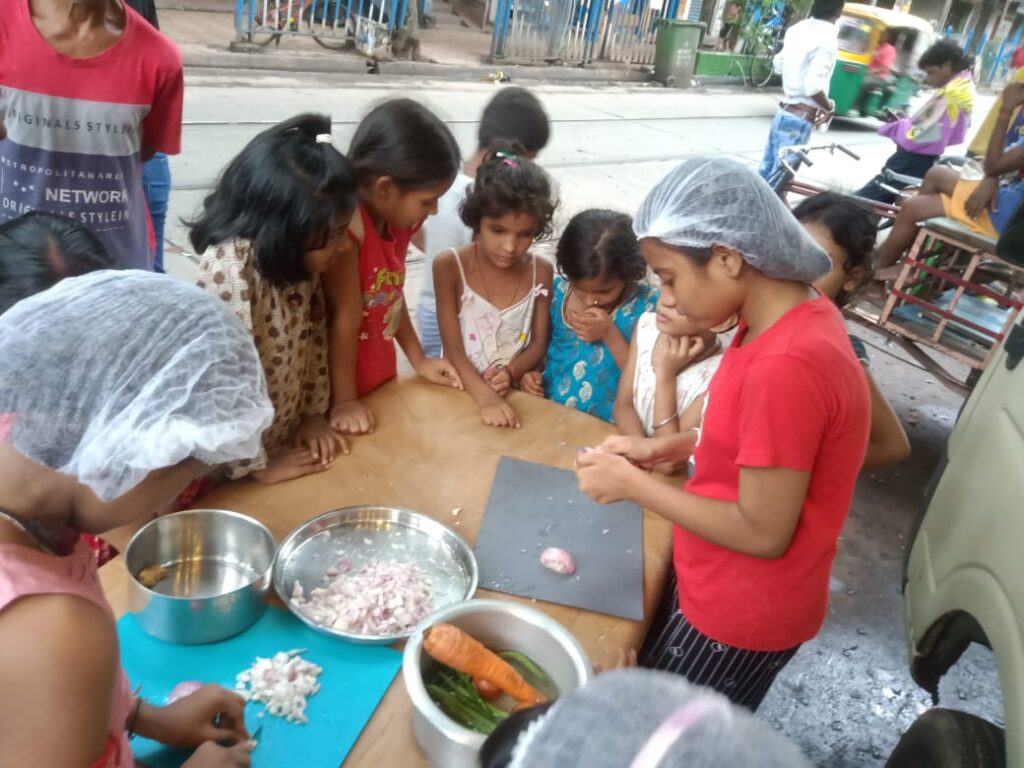
Do one: Learning is most effective when you put it into practice. Those who observed the cooking process one day tried to cook it themselves the next day.
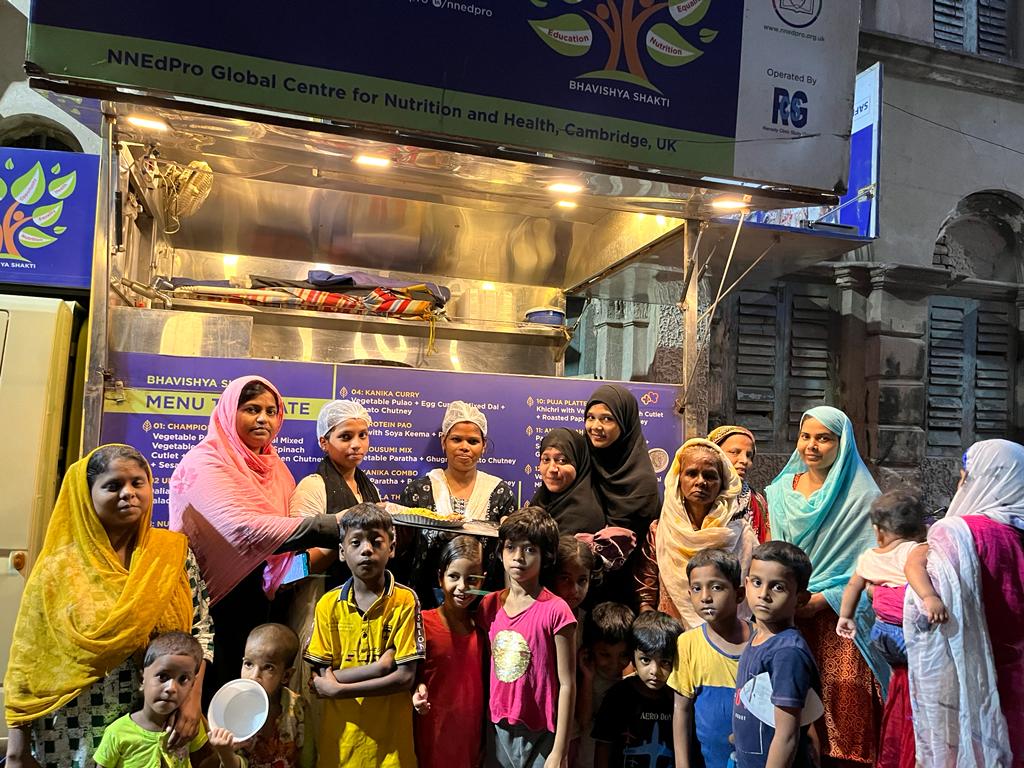
Teach one: Once individuals have learned and practiced a skill, they can share their knowledge with others, such as neighbors, fellow slum residents, or peers. This not only serves as a teaching module but also builds a sense of community among the slum residents.
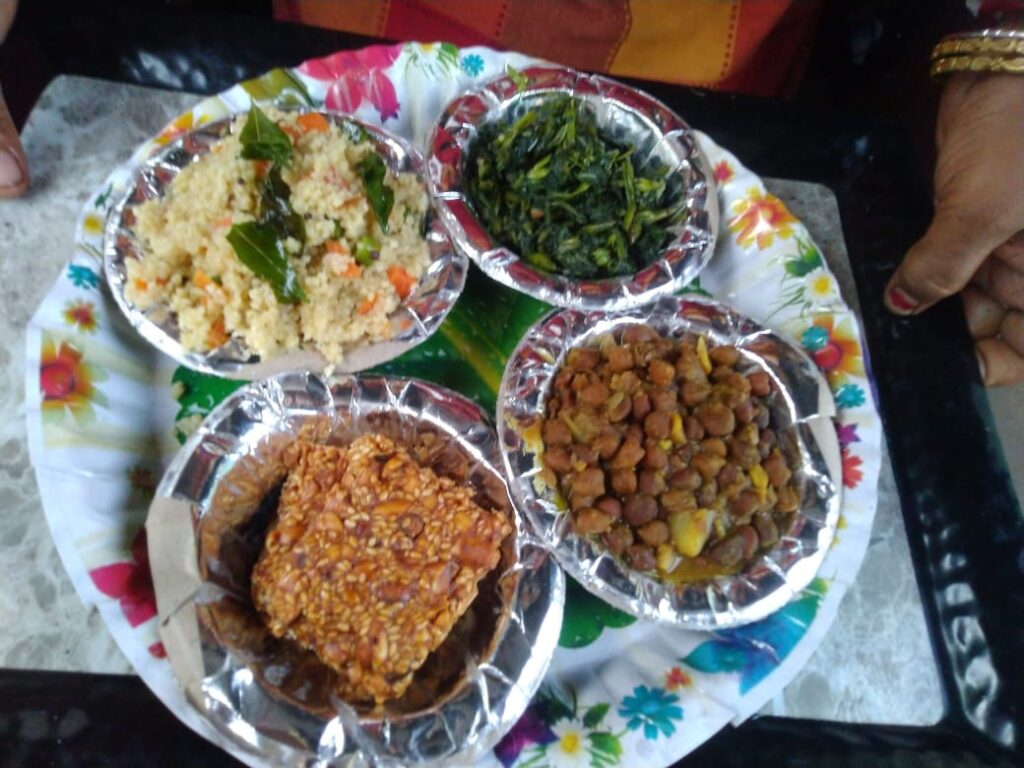
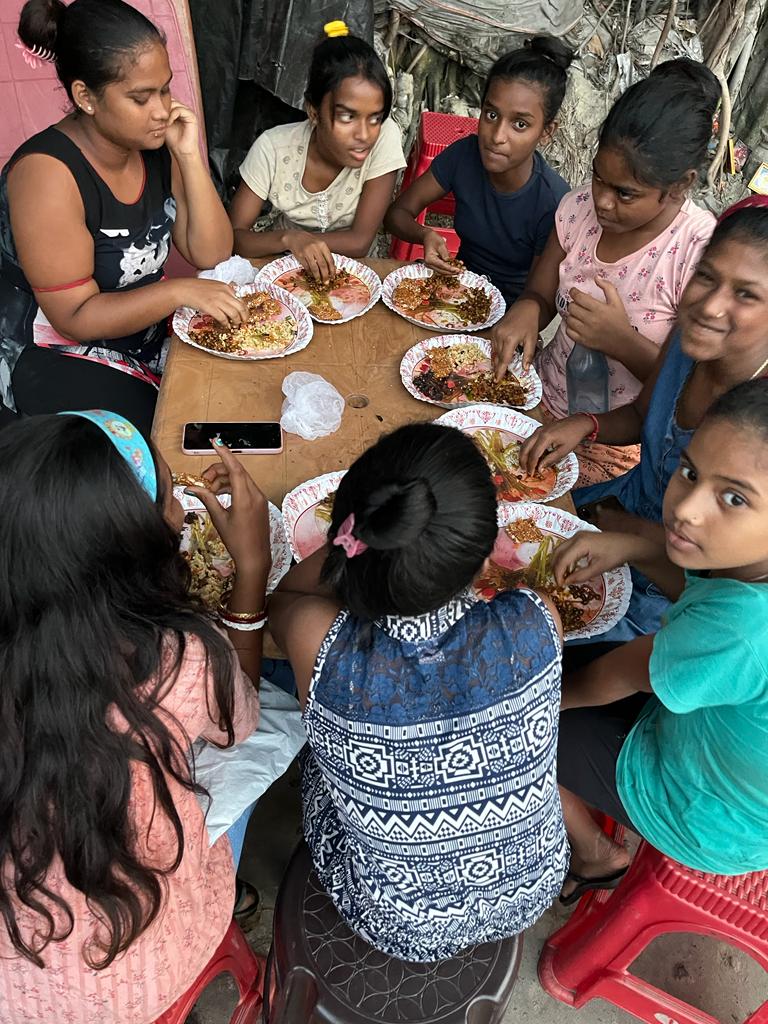
In conclusion, the partnership between Calcutta Rescue, APPI, and NNEdPro has significantly improved the nutritional knowledge and practices of slum residents, contributing to their overall well-being and fostering a sense of community. The focus on proper nutrition positively impacts health and society as a whole.
